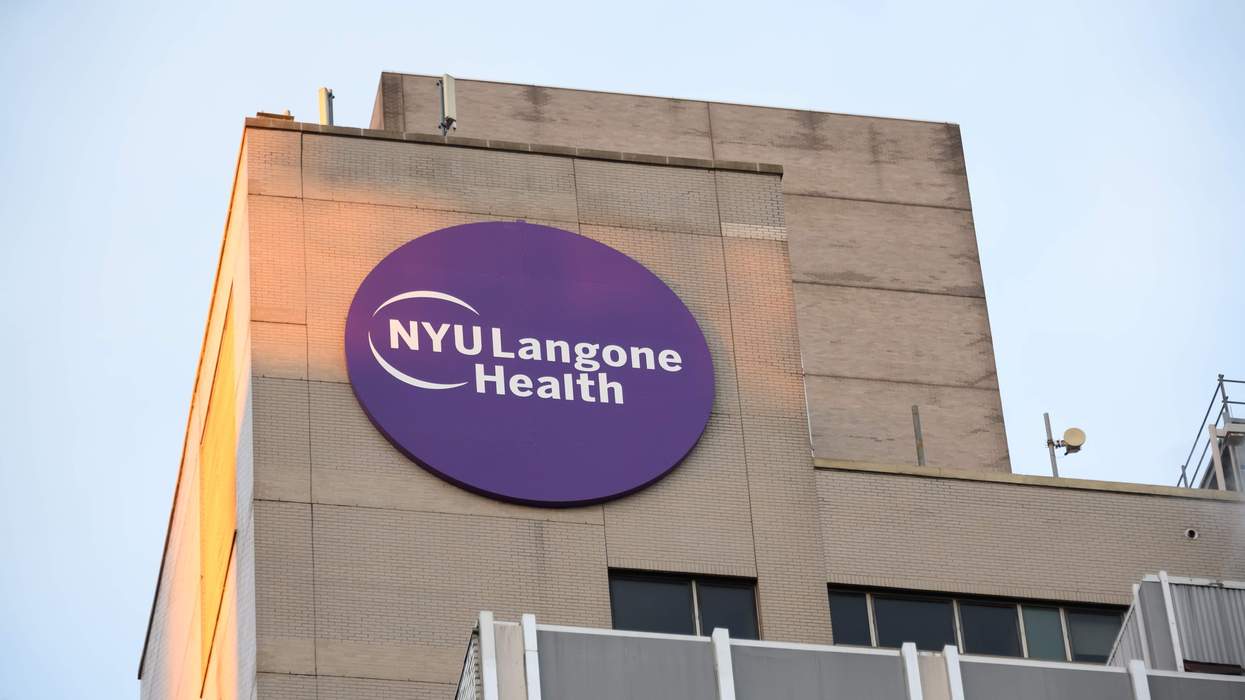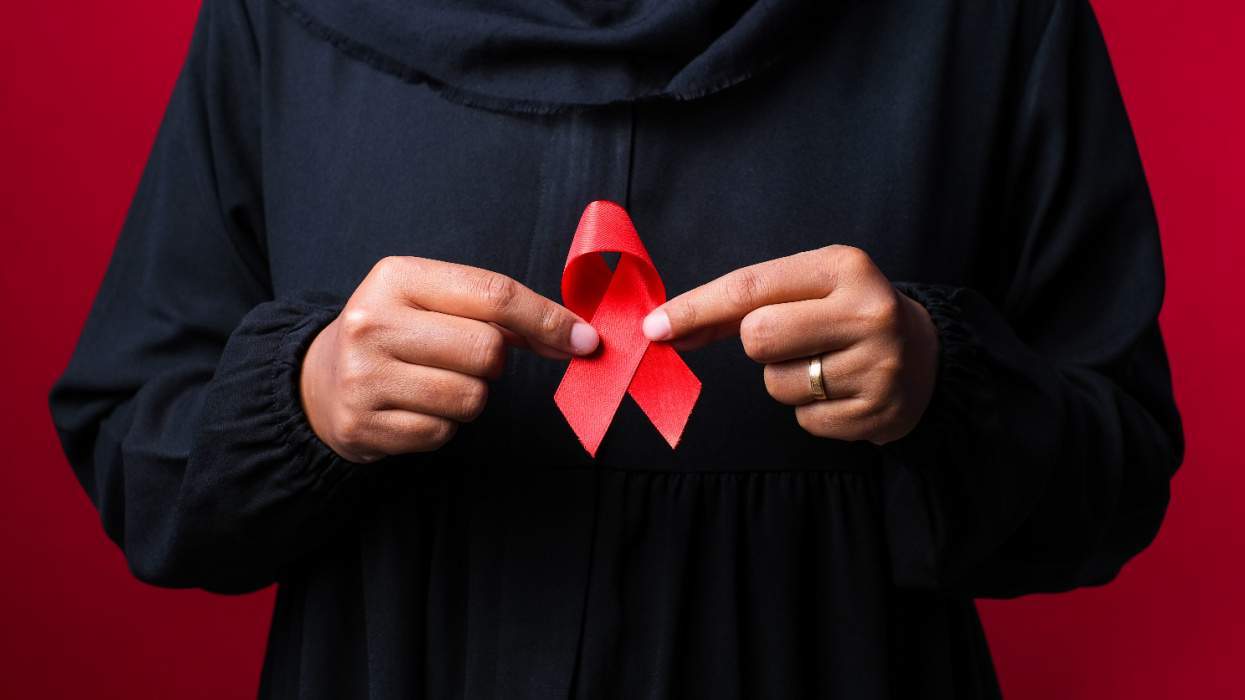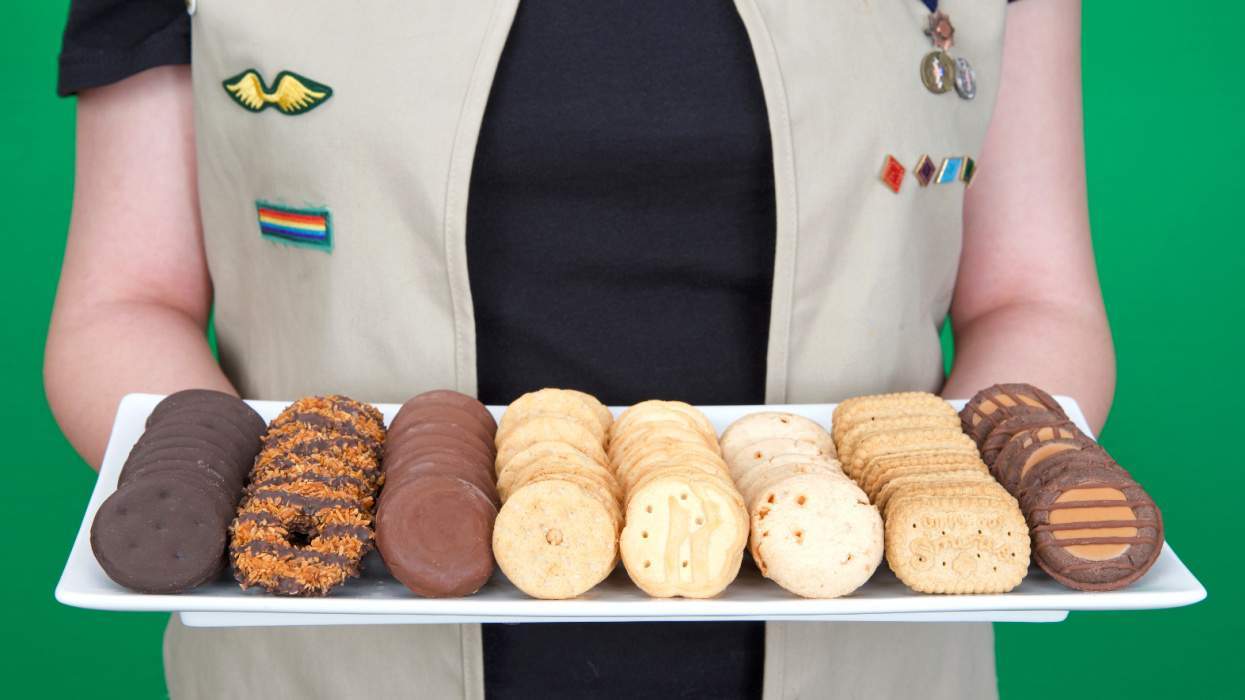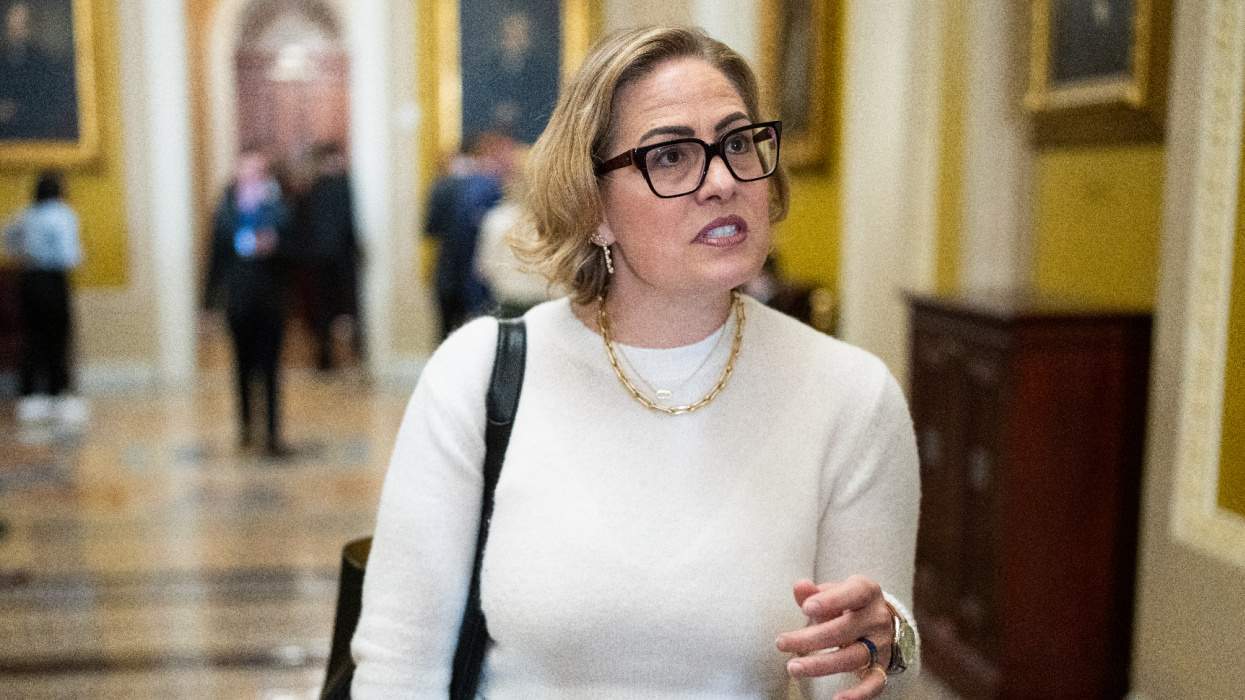After gaining international attention singing on and cowriting the Macklemore and Ryan Lewis song "Same Love," Mary Lambert was forced to deal with sudden and unexpected fame. On this week's episode of LGBTQ&A, she says she wasn't in a good place when the song came out and she was suddenly forced to deal with her bipolar disorder and body image issues for the first time while in the public eye.
Celebrating the release of her first book of poetry, Shame Is an Ocean I Swim Across, Mary sits down with us to also discuss how as a Christian she's grappling with the new wave of so-called religious freedom laws, why she left her record label, and growing up with a queer parent.
Read highlights from the interview here, or listen to the full podcast interview on the audio player below.
Subscribe to LGBTQ&A on iTunes, Spotify, Stitcher, or wherever you listen to podcasts.
The Advocate: Your mom is bisexual. Obviously, that didn't make you gay, but how do you think growing up with a queer parent affected you?
Mary Lambert: I was immediately like, "Hell yeah, mom. Do your thing." And just proud of her. I didn't see myself as someone that might eventually be queer, but I was always trying to kiss my friends. I got kicked out of a slumber party because I tried to kiss a girl.
My early childhood, we were strict Pentecostal. She came out and we went from not being able to watch much television or listen to anything but gospel Christian music to then exclusively listening to Melissa Etheridge and Tracy Chapman.
What's it like to be so religious and see the next wave of anti-LGBTQ legislation being framed as religious freedom laws?
I feel like uniquely qualified to talk to the Christian right. Before I came out, I joined the evangelical church and I remember crying because I thought my mom was going to hell. I thought I just had to pray for her, so I understand where people are coming from. I think it's difficult for people that weren't raised in that atmosphere to have compassion for it because it feels so hateful. I understand because I used to feel that way.
The people in your life have come around, but what about people who don't know a queer person? Where do they start?
I try to come from at it with empathy. "I understand why you feel this way and I understand that you just want to save us. But I am Christian and I'm still good with God." And if I can go through scripture with them and understand where they're drawing these conclusions, which is often from a pastor, then I can try to offer a counterpoint or just something to chew on.
There's a desire for an instant gratification of switching someone's mind-set, but it just doesn't happen. It's a slow and gradual process.
With "Same Love," which came out in 2014, that could have easily been a song on Macklemore and Ryan Lewis's album that no one ever heard. Was there a moment you realized that it was blowing up?
In Seattle, it was big and it was blowing up there. It wasn't until I heard it on a pop station in Chicago that I realized it was becoming a phenomenon. I also have so much respect for Macklemore and Ryan and their team for putting money into making it a campaign to encourage radio promoters to do it. A lot of people took a chance to promote this and a lot of radio stations got a ton of flak for it. It was really bold and encouraging that the radio industry, which is kind of notoriously scummy, made it a priority. It just felt really revolutionary.
You were living in Seattle at that time. Were you well known there?
No. I was playing venues of eight people. I didn't even have an album out. I had nothing.
Was there a lot of pressure to capitalize on that momentum?
I had my own sort of pressure but knew it wasn't sustainable. I wanted to continue the momentum in a way that felt authentic without being completely opportunistic in a bad way.
With that sudden and unexpected fame, did that compound issues with mental illness?
One hundred percent. I have always contended with being bipolar, but I really started having pretty severe swings when "Same Love" came out, depressive episodes that would result in me crying for just like 24 hours. I just couldn't stop crying. I couldn't get out of bed. I just have really, really severe anxiety and I didn't know how to handle it.
I was also one of those people just incessantly checking comments and Twitter. I was so scared I was going to screw up and that it was going to be broadcasted. That pressure was so rapid and so new that I just really didn't know how to handle it. And there's no guidebook. I see those years as learning lessons.
How were you finally able to gain balance?
Leaving the record label was really important for my mental health. I just don't do well with authority. Any time there's another person in the room, I can't help but make myself smaller. I realized I started writing songs with the intention of the listener liking it. It's a really scary place to write from, because operating in a creative binary where this song is either good or bad, rather than this song is about my feelings and who cares about the outcome? I'm just going to speak my truth, and if it resonates with somebody, then awesome.
You're famous for something that means so much to people. Do you get a lot of people coming up to you and revealing their trauma?
Yeah, but it's perfect for me. I remember being a little kid just saying that I wanted to change the world, to do something deeply impactful and healing. So when I do a show, these aren't just shows, I'm facilitating group therapy. A meet-and-greet isn't just like taking a photo with me, it's having somebody tell me their story, crying, and I get to hold them.
Does that make it hard to take care of yourself?
That used to be an issue. I released "Body Love," this poem about body image. After that, I was getting 50 emails a day from fans saying they were in rehab for an eating disorder and were listening to this every day and it was helping them eat again.
I was so inspired and moved by it, but I also started taking it home, kind of getting this savior complex. It was around that time that the fanaticism started with people not really caring about the connection. It was more about the celebrity culture or the consuming of the personhood rather than the messaging. It was really uncomfortable for me, because the messaging and the healing is my priority. I just didn't know how to deal with it. I'm so grateful to be a part of that journey, but I don't have ownership over that.
This interview has been edited and condensed. Subscribe and listen to the full podcast interview on LGBTQ&A.















Charlie Kirk DID say stoning gay people was the 'perfect law' — and these other heinous quotes
These are some of his worst comments about LGBTQ+ people made by Charlie Kirk.